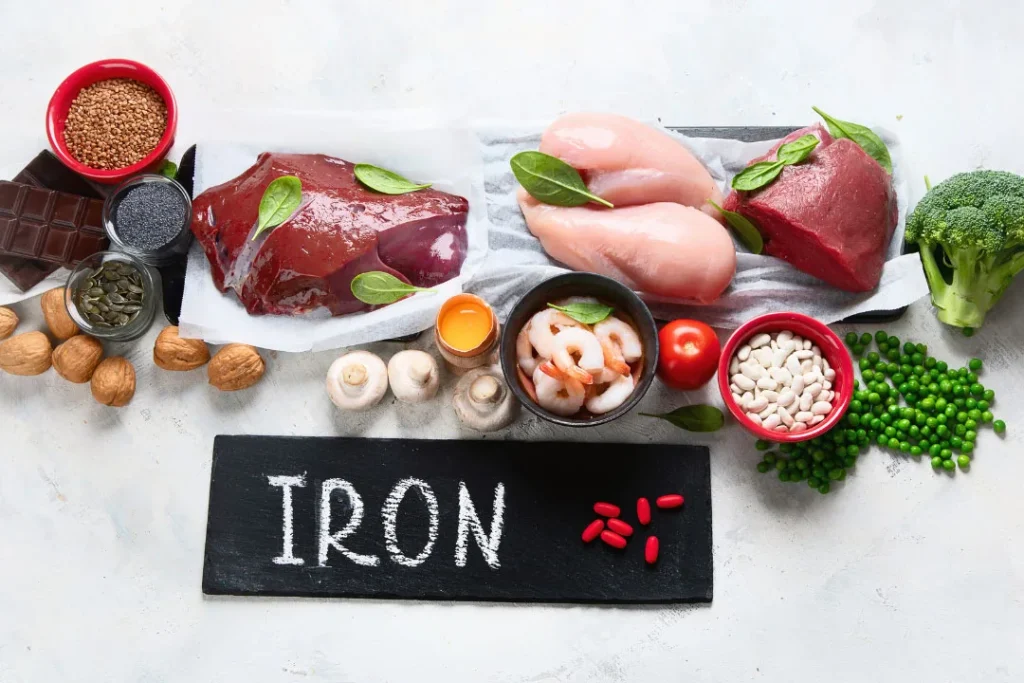Due to its distinct physiochemical features and possible health advantages, carrageenan, a natural polysaccharide isolated from diverse species of red seaweed (Rhodophyceae), has received considerable study in a number of sectors. Carrageenan, which alternates between the D-galactose and 3,6-anhydrogalactose structures, exhibits several structural changes that affect its characteristics and consequent effects on health.
You May Also Like:
The Best Mushroom Supplements for Memory: 5 Top Brands Reviewed
Finding the Best Supplements for Brain Fog After COVID: 5 Top Brands Reviewed
Nature of Carrageenan
The main kinds of carrageenan are kappa, iota, and lambda, and they may be identified by the quantity and location of ester sulfate groups that they include in their repeating galactose units. When used as stabilizing agent, in the presence of potassium and calcium ions, respectively, kappa and iota carrageenan form strong, brittle, and elastic gels, while lambda carrageenan does not form gel but instead increases viscosity when added to solutions.
Carrageenan has been a staple component in dairy products, plant-based milk, and processed meats for a very long time because of its gel-forming, thickening, and stabilizing properties. In addition to this, carrageenan has also been investigated for its possible health advantages in the pharmacological and biological disciplines.

Health Benefits of Carrageenan
Carrageenan has a wide range of alleged health advantages, many of which are still being researched. Strong antiviral activities have been shown for carrageenan, notably against the herpes simplex virus and the human papillomavirus. Carrageenan’s structure enables it to adhere to the viral envelope and stop the virus from adhering and infecting host cells.
Carrageenan has further shown to have anti-inflammatory properties in various in vitro and in vivo investigations. Carrageenan has been shown to specifically inhibit the production of a few pro-inflammatory cytokines, suggesting potential uses in the treatment of inflammatory diseases.
Additionally, carrageenan also includes prebiotic qualities that promote the development of healthy gut flora, which is essential for maintaining gut health and general well-being.


The Chemistry of Carrageenan
A class of linear sulfated polysaccharides known as carrageenan is extracted from red edible seaweeds. The three primary kinds of carrageenan are kappa, iota, and lambda. Their chemical composition, notably the quantity and placement of ester sulfate groups on the repeating galactose units, is what distinguishes them from one another.
Iota-carrageenan, lambda-carrageenan, and kappa-carrageenan all have one sulfate group per disaccharide. When certain cations, such as potassium for kappa and calcium for iota, are present, kappa and iota, respectively, create robust and hard gels. Lambda-carrageenan, on the other hand, as previously mentioned, does not form gel but rather forms colloidal solutions due to its increased sulfate concentration.
Carrageenan’s physical properties, reactivity, and interactions with other substances are all influenced by these chemical features, including the level of sulfation, the kinds of connections between sugar units, and the presence of certain cations.
Physiological Mechanisms of Action of Carrageenan
Carrageenan’s chemical composition has a significant impact on the physiological consequences. It interacts with different proteins and other biological components due to its large molecular weight and anionic makeup.
Carrageenan is thought to have anti-inflammatory properties due to its capacity to bind to certain proteins implicated in inflammatory reactions, preventing the activation of inflammatory pathways. In particular, studies show that carrageenan can reduce the production of pro-inflammatory cytokines that are important mediators of inflammation, such as tumor necrosis factor-alpha (TNF-), interleukin-1 beta (IL-1), and interleukin-6 (IL-6).
Carrageenan is known to have antiviral characteristics because it can bind to virus particles and prevent viral entrance, which stops the illness from spreading.
Carrageenan’s putative prebiotic impact is related to the fact that it is not digested. Carrageenan may encourage the development and activity of helpful gut bacteria in the colon as it travels through the digestive system, enhancing gut health.
Carrageenan interacts with human physiology, although the precise methods through which are still poorly known. The majority of the data comes from in vitro or animal research, which may not accurately reflect human biology. Therefore, further study is needed to fully understand the influence of carrageenan on human health, even if these results provide insights into some of its probable mechanisms of action.


Optimal Dosage of Carrageenan
There is no set recommended dietary allowance (RDA), despite the fact that carrageenan is permitted for use as a food additive by several regulatory agencies, including the U.S. Food and Drug Administration (FDA) and the European Food Safety Authority (EFSA). The utilization of carrageenan in food is regarded as safe as long as it follows the guidelines of “Good Manufacturing Practice,” which stipulates that the amount supplied must not be more than what is necessary to get the intended result.
Carrageenan use, however, has been linked to negative impacts, particularly in terms of digestive health. High levels of carrageenan may be associated with gastrointestinal inflammation, ulcers, and lesions, according to certain animal studies. The applicability of these studies to human health is still debatable since they often utilize dosages that are far higher than those seen in the average human diet.


Side Effects of Carrageenan
While regulatory organizations like the FDA usually see carrageenan as safe for usage in food items, there are certain possible negative effects that have been noted, especially in relation to digestive health.
High levels of carrageenan can contribute to gastrointestinal tract inflammation and illnesses including colitis, according to a number of animal studies. These investigations described cases of gastrointestinal lesions and ulcerations that were linked to long-term carrageenan use.
A connection between carrageenan intake and the development of insulin resistance and glucose intolerance in mice has also been proposed. In light of conditions like diabetes, this connection has significant consequences for human metabolic health.
It is important to remember that these negative effects are often only seen when large doses of carrageenan are consumed, which is frequently far more than is found in our everyday diet. Furthermore, because the majority of these findings came from studies involving animals, applying them directly to human health calls for further study.
Anecdotal data and individual case reports imply that carrageenan intake may cause symptoms including bloating, irritable bowel syndrome, and food allergies in human studies. Such data, however, is insufficient to make firm judgments.
Overall, health organizations agree that carrageenan is safe to consume in the proportions normally found in food items, despite the fact that it may have certain negative effects. However, as a precaution, those with delicate gastrointestinal systems or pre-existing gastrointestinal disorders may wish to restrict their consumption of carrageenan. Always seek medical advice or nutritionist advice before making large dietary changes or if you have any questions about food additives like carrageenan.
Potential Substance Interactions with Carrageenan
Carrageenan, a strong binder, may interact with a variety of compounds, including drugs. For instance, carrageenan’s ability to form gels may make it difficult for certain oral medications to be absorbed. As a result, those who are taking medication are recommended to see a doctor before consuming foods that contain carrageenan.
Carrageenan may also interact with dietary minerals like calcium and potassium, which could change the bioavailability of these nutrients. This implies that using carrageenan along with mineral supplements has to be carefully considered.
Responsible Use of Carrageenan
Considering how widely carrageenan is used in the food business, consuming it in some capacity is nearly a given. While carrageenan has certain useful characteristics and advantages, people should consume it responsibly. It is crucial to comprehend its possible connections and implications on health.
Future studies are necessary to define an ideal daily consumption amount for carrageenan and to further evaluate the substance’s health advantages. Until then, it would be prudent to think about the origin and caliber of meals and supplements containing carrageenan and to keep an eye on how one feels after ingesting such items.
To sum up, carrageenan is a fascinating polysaccharide with a variety of potential health advantages and applications in several fields. To fully comprehend its health ramifications, additional study is necessary, like with any drug, and it should be used carefully. This study consequently encourages further research and the sensible use of carrageenan in everyday life.


Carrageenan:
Conclusion
Carrageenan, derived from seaweed, has been used for its thickening and stabilizing properties in food products and also pharmacological products. Carrageenan is shown to have anti-inflammatory and antioxidant properties. These properties make carrageenan a valuable ingredient in supplements aimed at enhancing well-being as a whole. Carrageenan is also a great element to improve gut health and promote a good gut microbiome due to its prebiotic qualities. However, make a sensible choice of consulting a healthcare professional before incorporating carrageenan supplements into your routine because your needs and prescriptions may vary with others. Furthermore, selecting carrageenan supplements from reputable sellers ensures the quality and reliability of the product.
References:
- “Carrageenan: Health Effects, Uses, and More.” Retrieved From: https://www.healthline.com/nutrition/carrageenan
- “Carrageenan Properties and Applications: A Review.” Retrieved from: https://www.researchgate.net/publication/307856589_Carrageenan_Properties_and_Applications_A_Review#:~:text=Carrageenan%20is%20used%20widely%20in,contain%20the%20mixture%20of%20polysaccharides.
- “Safety and Efficacy of A Feed Additive Consisting of Carrageenan for Pets and Other Non-Food-Producing Animals (Marinalg International).” Retrieved from: https://pubmed.ncbi.nlm.nih.gov/35505787/
Important Note: The information contained in this article is for general informational purposes only, and should not be construed as health or medical advice, nor is it intended to diagnose, prevent, treat, or cure any disease or health condition. Before embarking on any diet, fitness regimen, or program of nutritional supplementation, it is advisable to consult your healthcare professional in order to determine its safety and probable efficacy in terms of your individual state of health.
Regarding Nutritional Supplements Or Other Non-Prescription Health Products: If any nutritional supplements or other non-prescription health products are mentioned in the foregoing article, any claims or statements made about them have not been evaluated by the U.S. Food and Drug Administration, and such nutritional supplements or other health products are not intended to diagnose, treat, cure, or prevent any disease.
